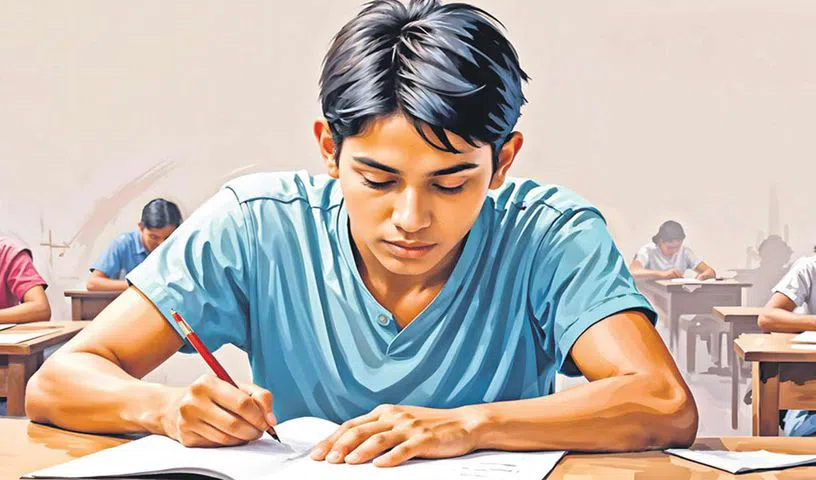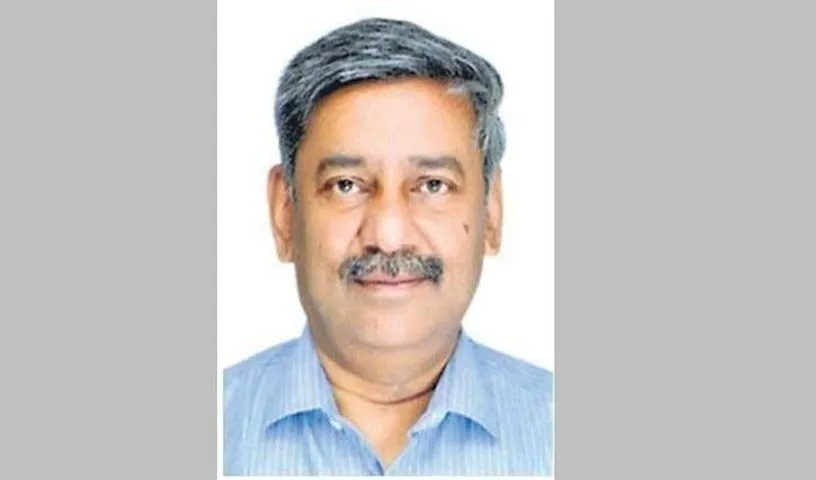How do we beat those who beat the competitive exam system? The Indian mindset is to beat the system and gain at someone else’s cost — as long as one is not discovered or one can manage, even after discovery. This is called gaming the system. For example, red traffic light. Very few will stop at a signal if no one is watching. This gaming is in school exams, college exams, job exams, in paying taxes, usurping government land, getting caste quotas, and, of course, jumping traffic lights. Gaming is done by the bottom of the pyramid to move up in life and also by the wealthy to grow their wealth and power. IAS and IPS aspirants who are supposed to be the role models for youth also cheat.
Children watch their parents and learn quickly from them. Parents cheat in paying municipal taxes, GST, income tax, in claiming insurance and government benefits and in falsely claiming subsidised LPG. On top of this, it is the parent who funds and supports the children’s effort to game the system. It is a big challenge to make a foolproof system when the stakes are so high and the scale so huge.
SC Judgements
There are two types of cases that wind up in the Supreme Court. First is the exam for admission into colleges and second, the exam for jobs. In both cases, the Supreme Court has set the criteria that the assessments must be objective, and the assessment process must be declared in advance and followed. So, any solution that we build must meet Supreme Court criteria.
Building Blocks
Now we will talk of the three building blocks of the solution: Transparency in everything; Extraordinary penalties and a Two-stage exam system.
• Transparency
There are four stages where transparency is paramount. First is shortlisting candidates for exams. Second, while conducting the exam, third is scoring and fourth is tabulating results. Let’s start with the shortlisting of candidates based on their eligibility. Here, we need an online application system that will transparently communicate the essential criteria and evaluate the application in real-time. Every candidate can log in and see her/his application status, along with the reason for the rejection, if any. The candidate will be given a 3-day window to challenge the rejection and within 3 days, get an online custom reply to her/his objection. At the end of the time window, the exam body will publish the statistics on the exam and the rejections.
The second stage is the conduct of the exam. The exam centres will be tracked by a special team with a live video feed to the internet, which will show how the exams are being conducted. The third stage is the scoring of answer sheets. After the papers are scored, answer sheets with the scoring sheet are put online and can be viewed by every candidate. The candidate will be given a 3-day window to challenge the score, and within 7 days, get a custom reply to her/his objection. So now, every candidate can see her/his answer sheet before the results are tabulated. In the fourth stage, the shortlist along with its statistics will be published and again candidates will be given time to challenge and seek a reply.
• Severe penalty
There are many stakeholders involved in exam fraud. First are the conspirators and co-conspirators, like coaching centres. Second are the willing participants, like invigilators, paper translators and college principals, who are participating in exchange for a benefit. Third are the students, and fourth are the parents of the students. We need very stringent punishments. Why? Because faith in the exam system is mandatory and anyone who attempts to destroy it should be treated as a traitor. Let’s start with the conspirators. They must get the highest punishment and life imprisonment or equivalent with huge fines. The willing participants must get imprisonment for 10 years with huge fines. The third are the parents, who should get between 5 and 10 years of jail with hefty fines, while the actual student should get minimal punishment. We should publish the names of the cheaters and their parents, and ensure that this is disseminated extensively.
The Public Examinations (Prevention of Unfair Means) Act, 2024, has a provision for up to five years imprisonment and a fine of up to Rs 1 crore for malpractices and organised cheating in central government recruitment exams. Bihar is the first State to ensure stringent punishment for cheaters. The law in Bihar since 1981 had the punishment of six months. Now the Assembly had passed a Bill aimed to curb the curse of questions paper leaks and other malpractices in government recruitment examinations in the State with an imprisonment term of three to five years and a fine of Rs 10 lakh for a participant. Conspirators will, however, face a fine of Rs 1 crore. All crimes under this law will be cognizable and non-bailable. This a great beginning. But it is not enough and must be made more stringent. Other State governments should also pass a Bill to make it very expensive to cheat.
• Two-part exam solution
This is the crucial part of my solution. The exam system will be a two-tier model. The first tier is the elimination round and the second is the selection round. The first exam will be conducted online with normal security. This will reduce the number from lakhs to thousands. Then twice the number of candidates required will be called for a second selection round — also online and like the first, in terms of difficulty level. This exam will be conducted in one common centre with elaborate security and with two invigilators per room. Video surveillance will be set up and reviewed closely. The test agency will allow, after the papers are scored, the answer sheets with the scoring to be viewed by every candidate. The candidate will be given a 3-day window to challenge the scoring and within 7 days, will get a custom reply to her/his objection. The test agency will also publish the marks of all the shortlisted candidates in the public domain. This will deter fraudsters from attending the second exam because they will not want to be identified in public with low scores in the second exam despite high scores in the first exam. Let’s see how this system is beneficial. The first purpose of any exam system is to ensure that the wrong person does not get in. This is easily met in the two-tier system. The second purpose is to ensure that the good candidate is not kept out. By asking double the number of candidates to take the second exam, the right candidate will get another chance to prove her/his credentials.
Multiple Assessments
In the 2024 Olympics, in the 5,000-metre race, there were multiple heats to eliminate and a final race to select the top three. In T20 World Cup, teams play group matches and then play multiple matches to reach the finals. In each of these, the level of difficulty is similar. But to earn a rank, everyone must perform multiple times. All these matches are objective and the format is specified in advance. Why is this logic not adopted in NEET or NCLAT or any competitive exam? Top performers will take the test multiple times as long as it is specified in advance and is a forward movement.
How to Implement
The exam agency must declare that this is a two-stage system with a similar level of difficulty right at the beginning. Both exams will be objective type. Since candidates have been given an opportunity to challenge the answer sheets already, courts will find it difficult to entertain any re-exam plea.
In summary, we must acknowledge that it is impossible to get the exam system right in a single-stage exam. But the omissions of the first exam are corrected by the second and we have a fair and working model to eliminate fraudsters from gaming the system.

